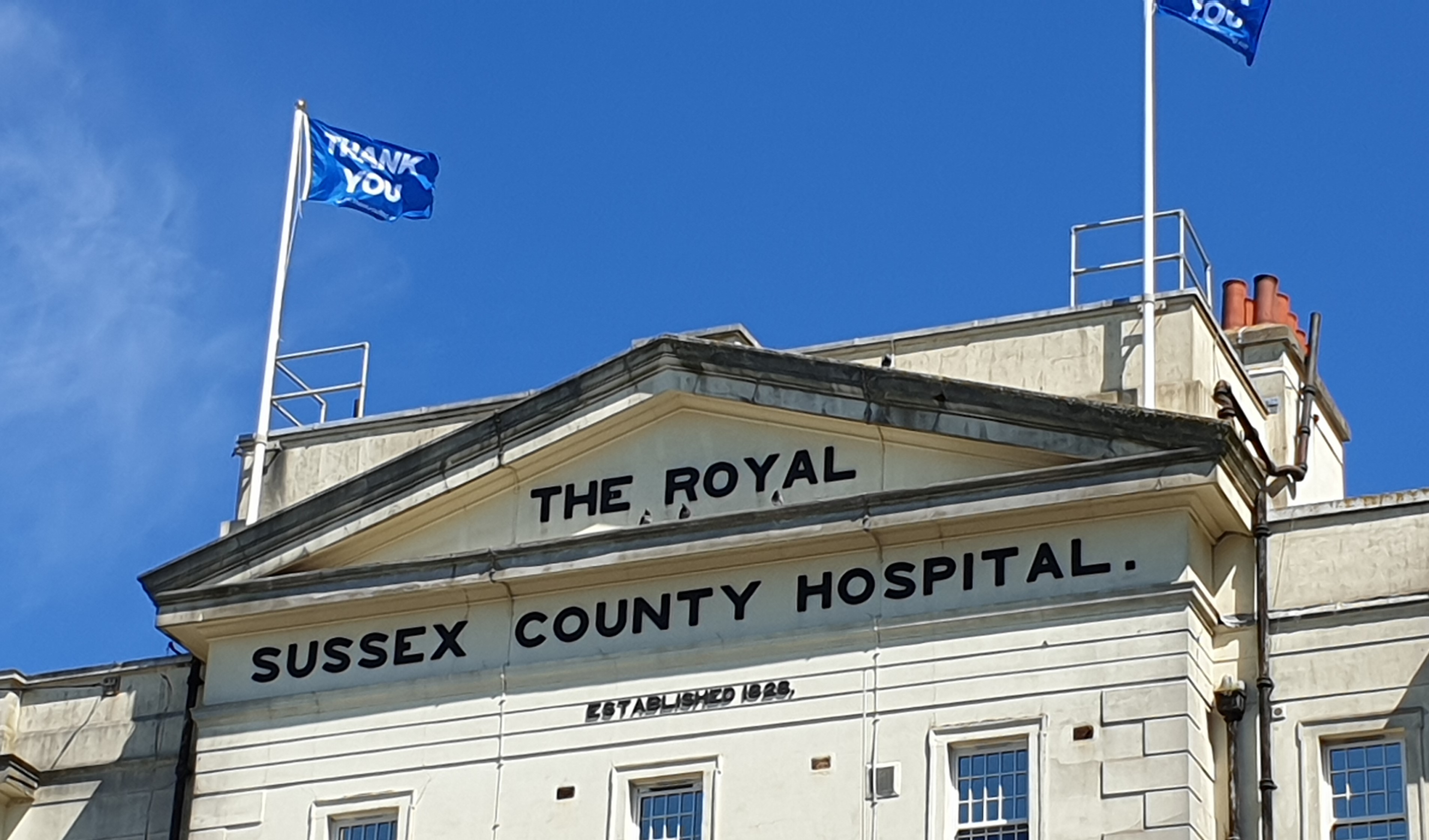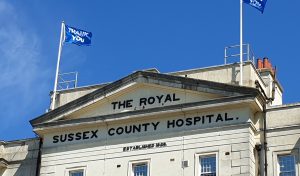The NHS hospital trust that serves Brighton and Hove is postponing non-urgent work as it “takes additional steps” to respond to the “winter surge”.
University Hospitals Sussex NHS Foundation Trust (UHSussex) said that it was “introducing a range of new measures to ensure it maintains safe services for patients as pressures on hospitals continue to mount”.
The trust is currently treating 52 patients with the coronavirus at the Royal Sussex County Hospital and the Royal Alexandra Children’s Hospital, in Brighton.
Five or fewer of those patients are in intensive care or high dependency beds, according to figures published today (Monday 10 January).
But staff sickness absence remains high and the trust said that 232 patients in its hospitals – in Brighton, Shoreham, Worthing, Chichester and Haywards Heath – were waiting to be discharged even though they were well enough to leave.
The trust said: “Pressures have been rising across the trust over the last few weeks and we now believe we are seeing the predicted surge hospitals all across the country have been preparing for.
“We are seeing significant, ongoing pressure on our A&E (accident and emergency) departments with high demand on our services and challenges managing flow across our hospitals.
“We are also seeing unprecedented delays in discharges due to a lack of capacity across our local NHS and social care services, combined with a high number of staff absent due to covid, which is putting further pressure on the number of available inpatient beds.
“We currently have 232 patients in our hospitals who are medically ready for discharge.
“There have also been rising numbers of patients with covid in beds across our four acute hospitals, including those in critical care.
“Because covid is so infectious, this causes additional pressure on beds as we need to care for patients with covid in dedicated areas, separate from those who don’t have covid.
“But by taking new measures to focus our resources where they are most needed, we are doing everything we can to care for the patients who need us, discharge those who are ready to go elsewhere and care for increasing numbers of patients with covid.
“Actions we are taking include
- Postponing some less urgent clinical work and reallocating staff as required to support essential services. We will do this in close consultation with clinical leaders
- Senior leaders will be working with teams across the hospitals and with system partners to review capacity, patients and to escalate issues and plan safe discharges
- Postponing some planned procedures in order to create space for patients needing urgent care.
- Launching a week long, multi-agency discharge event in line with our system partners and the national requirement for us to discharge 30 per cent of our medically ready for discharge patients by this Friday (14 January) and 50 per cent by 31 January.
- Developing detailed surge plans and asking for additional support at a national level to be able to staff additional clinical areas.
- Standing down non-essential meetings to maximise the number of colleagues available to work in clinical roles.”
…
University Hospitals Sussex chief nurse Maggie Davies said: “Unfortunately, this does mean postponing some non-urgent operations and outpatient appointments to accommodate those patients with the most urgent clinical need.
“We will continue to prioritise cancer and our other most urgent operations and appointments and are in the process of contacting those patients whose appointments are being postponed.
“We know it is distressing for people when operations are delayed and we are doing everything we can to ease pressures.”
The trust said: “A&E departments remain open for serious accidents and emergencies and, unless patients hear otherwise, they should continue to attend outpatient appointments.
“Patients and visitors are being asked to take a lateral flow test before attending hospital and wear a surgical mask.”
Dr Davies added: “People can help us manage these periods of demand by ensuring they are seeking help from the most appropriate health services through their GP, NHS 111, or their local pharmacy, they comply with our guidance and have their booster jab.
“Our teams and community partners continue to work exceptionally hard, keeping things moving and getting our patients discharged in a timely way to create additional beds for patients who need them.
“Once patients are medically ready to leave hospital, we need their families, carers or social care settings to support them as much as necessary to be able to go home safely.”










But how many people have been hospitalised locally due to Covid?
Most positive tests either involve no symptoms or symptoms no worse than the flu. An individual would have to be very unlucky indeed (and with co-morbidities in most cases) to be hospitalised with this.
I visited the Sussex last week to see a friend in the Thomas Kemp tower. Miles of corridors virtually deserted. I was surprised as this was not what I expected of a busy or overflowing hospital. Maybe you need to send a reporter to do and look. or submit an FOI for actual cases severe enough to be admitted to hospital.